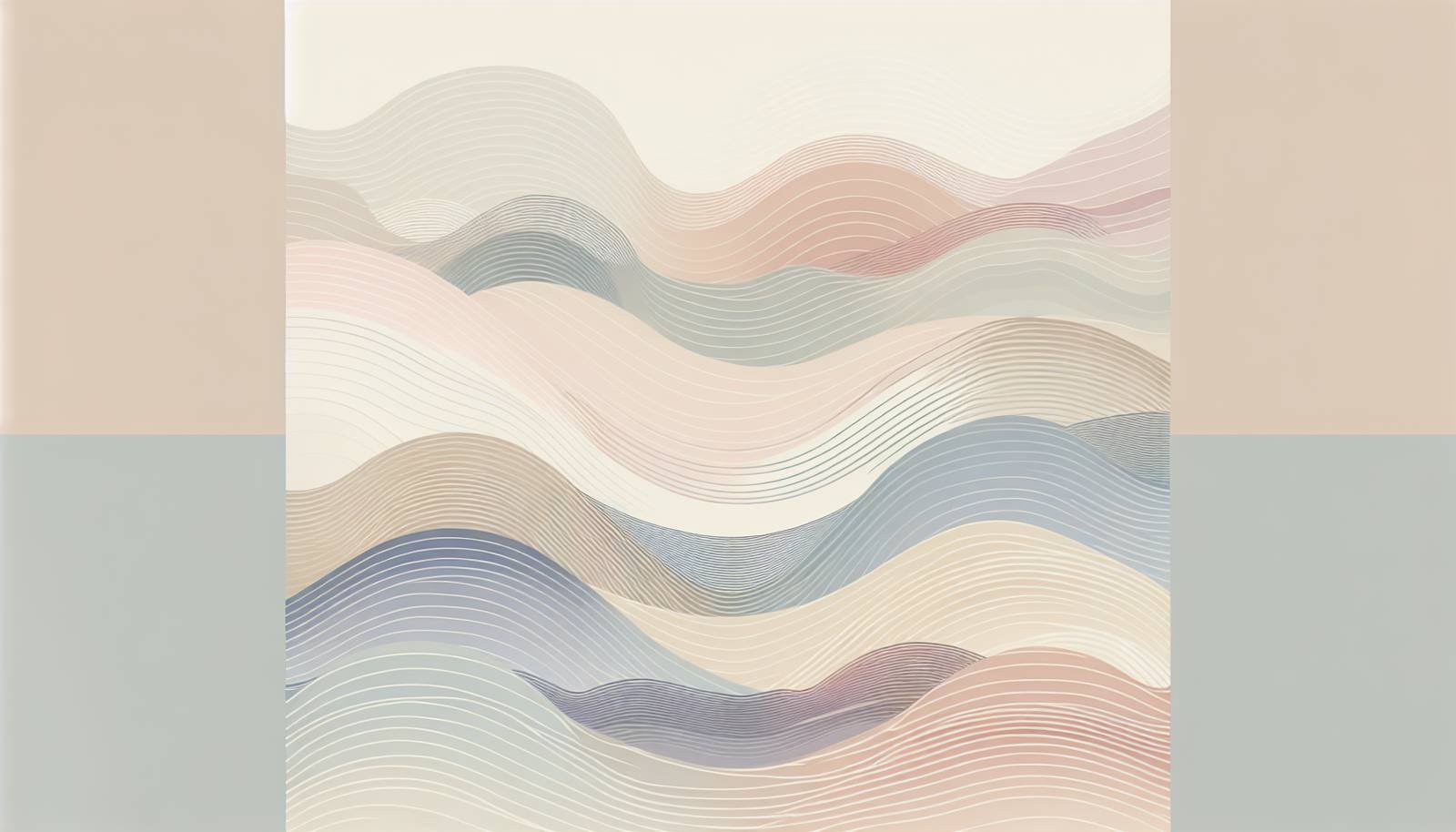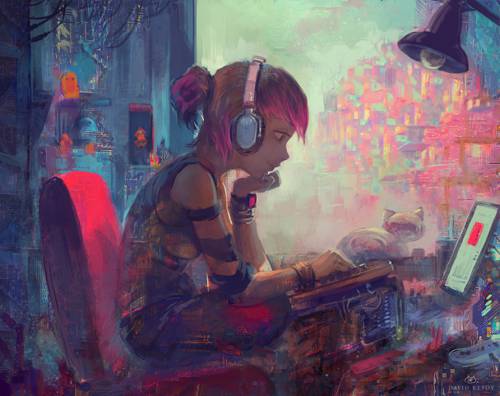
FAQ About The Role of Lo-fi Music in Modern Relaxation Trends

What is Lo-fi music?
Lo-fi music refers to a genre characterized by its lower-quality production, intended to create an authentic, raw sound. It often includes imperfections like background noise or distortions deliberately left in the recordings. Lo-fi has gained popularity for its relaxing quality and is often used in study or work environments to enhance concentration.

How did Lo-fi music originate?
Lo-fi music originated in the late 20th century, stemming from a DIY ethic where musicians recorded music at home on analog equipment, embracing imperfections as a form of artistic expression. The genre partly evolved from punk and indie rock's underground movements, emphasizing 'do it yourself' production aesthetics.

Why is Lo-fi music popular for relaxation and study?
Lo-fi music is popular for relaxation and study because its calming, repetitive beats and mellow tunes create a peaceful ambiance. The lack of lyrics often found in lo-fi tracks allows listeners to focus on tasks without getting distracted by a vocalist's message, making it ideal for enhancing concentration.

What are some key characteristics of Lo-fi music?
Key characteristics of lo-fi music include a low-fidelity recording quality, often with intentional imperfections like distortion and background noise. The genre typically features simple, repetitive instrumental melodies with a laid-back vibe that contributes to its calming effect. Many tracks also incorporate sound effects such as vinyl cracks and ambient noises.

Who are some notable artists in the Lo-fi music scene?
Some notable artists in the lo-fi music scene include Nujabes, widely regarded as one of the pioneers of the genre, J Dilla, and artists like Tomppabeats and Jinsang who have helped define modern lo-fi sounds. Online platforms have also popularized anonymous producers contributing significantly to the genre.

How does Lo-fi music influence contemporary music genres?
Lo-fi music influences contemporary music genres by incorporating elements of hip-hop, jazz, and chillwave into mainstream music. Its distinct sound has inspired artists across genres to experiment with mellow beats and DIY production techniques, fostering a cross-genre appeal and contributing to new sub-genres like lo-fi house.

What platforms are popular for listening to Lo-fi music?
Popular platforms for listening to lo-fi music include YouTube, Spotify, and SoundCloud. On YouTube, dedicated channels such as 'lofi hip hop radio - beats to relax/study to' stream lo-fi tracks 24/7, while playlists curated by users or artists on Spotify and SoundCloud offer an extensive selection of lo-fi music.

Is Lo-fi music effective for enhancing productivity?
Lo-fi music is often effective for enhancing productivity because its soothing melodies and steady rhythms help create a focused and relaxed environment. The genre's lack of lyrics minimizes distractions, allowing listeners to concentrate better on tasks, making it a popular choice for studying, working, or even meditating.

What sets Lo-fi music apart from other music genres?
What sets lo-fi music apart from other music genres is its emphasis on imperfection and simplicity, both in production quality and sound. Unlike highly polished and produced music, lo-fi embraces a raw, unfinished quality to create an atmosphere that is intimate and authentic, often with a nostalgic or introspective feel.

Can Lo-fi music help with anxiety or stress?
Lo-fi music can help with anxiety or stress as its slow tempos and soothing soundscapes can induce a state of calm and relaxation. Listening to lo-fi tracks can provide a comforting background noise that helps alleviate feelings of tension or unease, making it a useful tool in stress management and mental health practices.

How does Lo-fi music contribute to studying efficiency?
Lo-fi music contributes to studying efficiency by providing a non-distracting background atmosphere that helps with focus and concentration. Its repetitive melodies and ambient sounds create a stable environment, helping listeners maintain attention and absorb information more effectively during study sessions.

What are common instruments used in Lo-fi music?
Common instruments used in lo-fi music include pianos, guitars, and synthesizers, often accompanied by sampled beats and sound effects like raindrops or vinyl crackle. These instruments are typically recorded in a way that highlights imperfections, contributing to the genre's distinctive low-fidelity sound.

Is Lo-fi music always instrumental?
Lo-fi music is predominantly instrumental, which aids in creating its soothing backdrop ideal for relaxation and concentration. However, some lo-fi tracks do feature vocals, typically mixed at a lower volume or heavily processed to blend with the ambient sound, maintaining the focus on melody and atmosphere.

Can listening to Lo-fi music improve mental health?
Listening to lo-fi music can potentially improve mental health by providing a calming and soothing auditory experience that helps reduce stress and anxiety. Its mellow and repetitive sounds can promote relaxation and focus, making it a valued tool for mental well-being practices such as meditation or mindfulness exercises.

What are some popular Lo-fi music channels on YouTube?
Some popular lo-fi music channels on YouTube include 'Lofi Girl' (formerly 'ChilledCow'), 'College Music', and 'the bootleg boy,' all offering extensive live streams and curated playlists of lo-fi tracks ideal for studying, working, or relaxing.

What makes Lo-fi music aesthetically appealing?
Lo-fi music is aesthetically appealing due to its raw, unpolished sound that often evokes nostalgia and emotional introspection. Its imperfections, such as tape hiss and ambient sounds, create an intimate and authentic listening experience, resonating with listeners seeking comfort and simplicity in music.

How has digital technology influenced Lo-fi music production?
Digital technology has significantly influenced lo-fi music production by making it accessible for home producers through affordable software and equipment. While traditional lo-fi embraced analog imperfections, digital tools have allowed creators to replicate these effects, broadening the genre's reach with online distribution platforms.

Are there health benefits associated with listening to Lo-fi music?
There are potential health benefits associated with listening to lo-fi music, as its calming effects can help reduce stress levels and anxiety. Creating a serene environment through lo-fi can also aid in relaxation techniques and improve focus, indirectly benefiting mental well-being and productivity.

What role does nostalgia play in the popularity of Lo-fi music?
Nostalgia plays a significant role in the popularity of lo-fi music, as its sound often incorporates elements like vinyl crackle and vintage samples that evoke memories of past musical eras. This nostalgic element can create a comforting atmosphere for listeners, contributing to the genre's widespread appeal for relaxation and reflection.

How do sound effects enhance Lo-fi music tracks?
Sound effects enhance lo-fi music tracks by adding depth and texture to the music. Effects like rain, ocean waves, or ambient city sounds are often integrated, providing an immersive auditory experience that complements the soothing melodies and helps transport listeners to a calm, reflective space.
